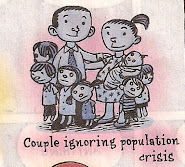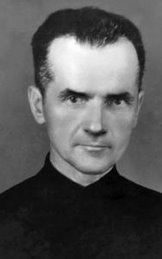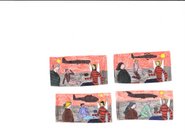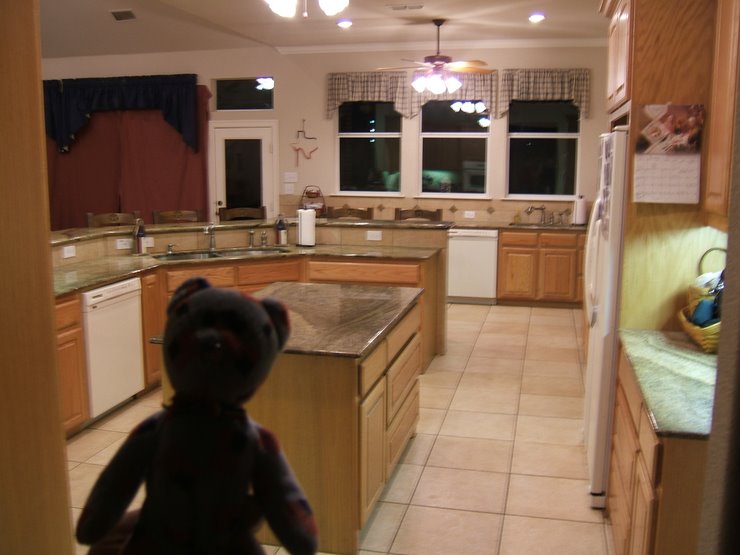Last Thursday I took a couple of our cars to a local garage to get their oil changed. I figured it was about time, as they were both 5,000 miles past the recommended service point. It was shortly before lunchtime, and I drove one car to the garage while one of my sons followed a few minutes behind. He had to go on to his college classes which start in the afternoon. I couldn't stand that kind of schedule. I like getting up early in the morning and getting my work done sooner rather than later. I am sure that influenced my selection of anesthesiology as a specialty. I also think that I am responding to my own father's habit of sleeping in. While he was teaching as a college professor, he avoided early morning classes. I suspect that my children inherited the 'sleep in late' gene from my side of the family. It must skip a generation.
I brought along a book called In Defense of Sanity, which is a compilation of essays by G.K. Chesterton. The essays were selected by Dale Ahlquist, Joseph Pearce, and Aidan Mackey. I have met Ahlquist and Pearce at home schooling conferences. Ahlquist inspired me to look into reading more of Chesterton's works, and I joined the American Chesterton Society to immerse myself more into this writer's work. Both Pearce and Ahlquist signed copies of their books which I had bought. I am reminded that one should never say something flippant when an author asks what he should write when he autographs a book. One of the books in my library is signed with the message to 'keep in touch,' while another states that I am a poor example of manhood. Even serious writers have a sense of humor.
I didn't think it would take long to change the oil in two cars, so I scanned the list of Chesterton's essays for one which would be short. I like short essays, because I often don't get back to a book for a while, and by then I need to start from the beginning again. This is especially true with Chesterton, because his writing seems to amble all over the place, and it requires a lot of concentration to follow his train of thought. Add to this that there was a television blaring away in the waiting room.
The television show was 'Family Feud,' where two families are pitted against each other. They have to guess the results of survey questions posed to some nebulous cross sectional group of Americans. All of the questions are loaded with innuendo, and today's question was no different. How can one best humiliate a man? By talking about his ....? I wondered if there were children watching this show right now, and thought about how these competing families never seem to have minor children. I also realized I was alone in the waiting room, so I hunted for the power switch on the television and shut it off.
Silence reigned. It reminded me of a time, back when I was in the Air Force, and I took our dog to the base veterinary clinic. I did not realize that we were not supposed to bring children - apparently a dog had mauled some child there in the past - so I showed up with several of my little creations in tow. The television in that waiting room was broadcasting the Jerry Springer Show where nearly every word spoken by the guests had to be blanked out. It was obvious that the persons were slinging around obscenities. Everyone in the waiting room was watching this demonstration of bad manners; everyone, including my children and I. I walked over and shut off the television, and then turned to the people staring at me in astonishment, announcing that I don't want my children watching that kind of garbage. Our dog was suddenly the next animal called back for a checkup.
As I reached for my book, my gaze fell upon the magazines covering the coffee table in front of me. There were automotive and news magazines, a conservative journal which blamed every problem in the world on the Catholic Church, and a collection of gossip magazines. Right in the middle of the pile was a gossip magazine with a topless woman on the cover. Her arm was strategically placed across her chest. As I tossed it in the garbage, I thought about how one day this woman might have teenage daughters of her own, and how she will have to explain her behavior to them. More likely she will be trying to keep them from making the same mistakes she made when she was young and attractive. I thought about something mentioned in one of the few lectures on geriatric medicine which we had in medical school. This was back in the 1980’s, and we were reminded that some of the elderly women we would be treating probably participated in the ‘flapper’ generation of the 1920’s. We were advised that we might encounter diseases which seemed out of place in senior citizens. But for now there I sat, in a room with all manner of temptation spread before me like a smorgasbord: cars I can’t afford, women I don’t want, and news I don’t care about. I turned back to Chesterton.
First, I became aware of men talking in the garage. I heard the workers calling out to one another as they went through their procedures on my cars. I heard the manager talking to someone on the phone about a worker who must be chronically late. I heard him mention that they will charge the employee ten dollars per day that he comes in late. Ouch. And lastly, I heard two workers discussing where they would buy lunch that day. There was nothing glamorous or dramatic about these conversations, but it was a welcome respite after the noise coming out of the television. It was refreshing to hear the ordinary speech of men going about the very honorable job of car care.
Finally I opened the book. Three essays caught my interest at once. One was on the Book of Job, another on the contents of Chesterton’s pockets, and the last was simply titled ‘A Piece of Chalk.’ I had heard about his essay on his pockets, and I wanted to read about Job because I recently experienced a new type of suffering, but decided to read about chalk instead. I had read somewhere that Chesterton and a friend were once looking through the window of a store, and GKC had declared that of all the things on display, a piece of lowly chalk was the most powerful thing of all there present. I thought this was the essay; I was wrong.
Chesterton begins his essay by procuring some chalk, after which he asked his landlady if she had any brown paper he could borrow. Now, I don’t know how big Chesterton was at the time he wrote this essay (1909), but he was a large man, and must have been very intimidating to those who did not know him well. I can only assume that the landlady fell into this category, as she eagerly supplied him with what he wanted. He then went out into the countryside to draw pictures on the paper. It struck me that Chesterton knew something about leisure which our present society has forgotten. I don’t know of any person who just walked out one day to go drawing pictures on brown paper. Certainly no adults would do this; we have too much other things to do. Only my children would possibly go and do something as fun as walk around outside and draw pictures. Even though our society is more advanced in so many ways, it appears as if we adults have forgotten how to take the time to play. St. Augustine once said that “without work is is impossible to have fun.” Perhaps too much of our work is just idling rather than pursuing a legitimate goal, and therefore we have burned up our free time - time we could spend coloring on brown paper. We need to recapture that childlike innocence, that aspect of fun.
Anyway, Chesterton suddenly realizes that he forgot to bring along a piece of white chalk. This would not be a problem if he were coloring on white paper, but it is a disaster when one’s canvas is brown. He makes a good point about the color ‘white:’
“And one of the two or three defiant verities of the best religious morality, of real Christianity, for example, is exactly this same thing; the chief assertion of religious morality is that white is a colour. Virtue is not the absence of vices or the avoidance of moral dangers; virtue is a vivid and separate thing, like pain or a particular smell. Mercy does not mean not being cruel or sparing people revenge or punishment; it means a plain and positive thing like the sun, which one has either seen or not seen. Chastity does not mean abstention from sexual wrong; it means something flaming, like Joan of Arc. In a word, God paints in many colours, but He never paints so gorgeously, I had almost said so gaudily, as when He paints in white.”
I agree with him, up to a point. Certainly virtue is not solely the absence of evil, but is the presence of good. I doubt anyone is going to get to Heaven simply because he avoided sin. But when an evil is avoided, or removed, other good things can appear. In my own case, shutting off the television - and tossing a magazine in the garbage - made it possible to listen to the sounds of men at work, and to read an essay uninterrupted, and to recall how white chalk is often all around us. We might even be sitting on it.



















3 comments:
Great blog post and a great book, I agree! About play, I do love to make time for it, however, there is a danger for many adults to make this object a central one, i.e. spending too much time playing video games, for instance. Unfortunately, this particular past time has perhaps colored the 'workers' perception of those who work AND play too negatively. What does the Church say? Moderation in both and neither if they are not set in its proper order that is as means to grow closer to God. After all, we are neither communists who view work as the end of all things nor the hedonist who would prefer to live in the Big Rock Candy Mountains where they 'hung the jerk who invented work'. We should strive to live somewhere in between these two poles keeping our focus on the One who has granted work and play to us as gifts and as vehicles to heaven.
Great blog post and a great book, I agree! About play, I do love to make time for it, however, there is a danger for many adults to make this object a central one, i.e. spending too much time playing video games, for instance. Unfortunately, this particular past time has perhaps colored the 'workers' perception of those who work AND play too negatively. What does the Church say? Moderation in both and neither if they are not set in its proper order that is as means to grow closer to God. After all, we are neither communists who view work as the end of all things nor the hedonist who would prefer to live in the Big Rock Candy Mountains where they 'hung the jerk who invented work'. We should strive to live somewhere in between these two poles keeping our focus on the One who has granted work and play to us as gifts and as vehicles to heaven.
One of my favorite Chesterton quotes, btw, “The true object of all human life is play.”
Post a Comment